Politics
Hungary’s Role in Europe’s Future: Von der Leyen on Crisis, War, and Economic Growth
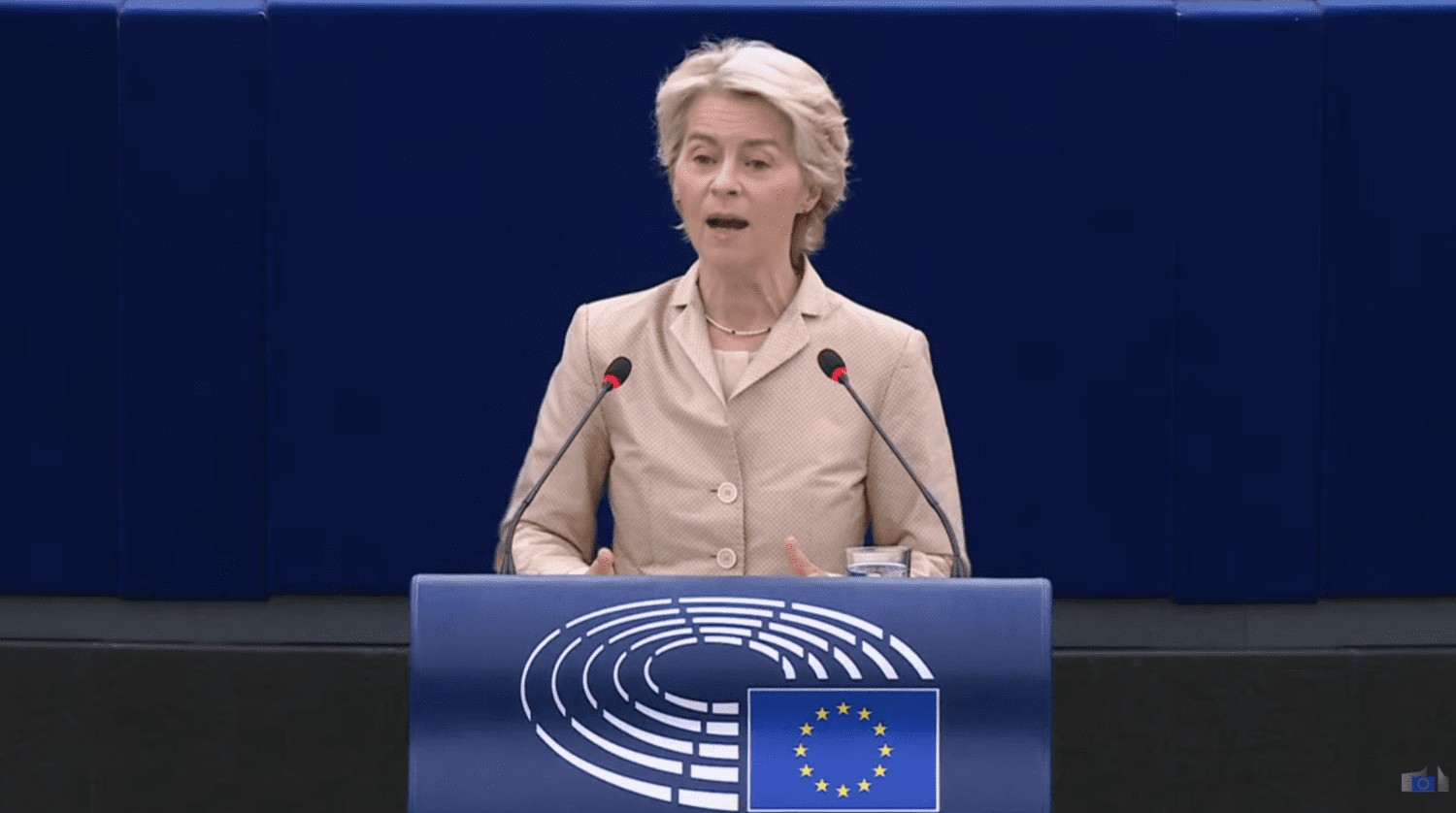
On a day that marked significant reflection and determination, Ursula von der Leyen, the President of the European Commission, addressed the European Parliament, focusing on key issues impacting Hungary, Ukraine, and the wider European Union. With a tone of solidarity and unity, she emphasized the importance of collective action in tackling the pressing challenges of our time: from climate change and migration to competitiveness and the ongoing war in Ukraine.
The Aftermath of Extreme Weather in Central Europe
The speech opened with von der Leyen expressing solidarity with Hungary and Central Europe after devastating floods, which delayed the meeting by three weeks. She described the extreme weather as a consequence of climate change, highlighting that “five months’ worth of rain fell on Central Europe in just four days.” The magnitude of the floods was unprecedented, causing destruction to landmarks, crops, and industries across the region, particularly in Budapest.
However, amidst this devastation, von der Leyen applauded the resilience of the Hungarian people: “In these three weeks, we have seen the people of Hungary rolling up their sleeves and helping one another.” She emphasized that Europe would stand by Hungary, stating, “The European Union is there for the people of Hungary in this emergency and beyond.” The European Commission had already mobilized its Copernicus satellites to aid in the rescue efforts, and Hungary was encouraged to access the EU’s Solidarity Fund to rebuild.
Supporting Ukraine Through Its Hardest Winter
Von der Leyen shifted the focus to Ukraine, a country heading into its third winter of war with Russia. The situation has worsened as Russia continues its assaults, launching over 1,300 drones on Ukrainian cities in the past month alone, targeting essential energy infrastructure and causing widespread destruction. In a powerful rebuke to those who downplay Russia’s aggression, von der Leyen asked, “Would they ever blame the Hungarians for the Soviet invasion in 1956? Would they ever blame the Czechs or Slovaks for the Soviet repression of 1968?” She emphasized that the Ukrainian people are freedom fighters, much like the heroes who liberated Central and Eastern Europe from Soviet rule.
Europe’s response to the war is unwavering. Von der Leyen announced that the EU, alongside the G7, had pledged €50 billion to Ukraine, of which €35 billion would come in the form of loans to support the country’s national budget. Critically, these loans would be repaid using the windfall profits from immobilized Russian assets. “We are making Russia pay for the damage it caused,” she asserted, emphasizing Europe’s continued support for Ukraine “through this winter and for as long as it takes.”
Enhancing European Competitiveness
The next priority in von der Leyen’s speech centered on improving European competitiveness. She referred to the Draghi report, which provided a roadmap for strengthening the EU’s economic future. The primary concern raised was the “innovation gap” between Europe and other major economies, particularly in the digital space. “Too many of our innovative companies have to look at the United States or Asia to finance their expansion,” she noted, pointing out that while European households have €300 billion in savings, much of it is invested outside the continent.
Von der Leyen proposed a solution: the creation of a savings and investment union, aimed at eliminating barriers that prevent companies from scaling up across European borders. To boost competitiveness, she suggested a reduction in regulatory burdens, especially in sectors like finance and digital technologies.
However, the president took a firm stance against Hungary’s current policies, criticizing the Hungarian government for its discriminatory practices towards European businesses. She questioned how Hungary could hope to attract investments when it imposes arbitrary export restrictions, discriminatory taxes, and allows corruption to flourish in public contracts. “This creates uncertainty and undermines investors’ trust,” she warned, pointing out that Hungary’s GDP per capita had fallen behind its Central European neighbors.
Decarbonization and Energy Security
Von der Leyen also tackled the issue of decarbonization, a critical part of Europe’s path towards sustainability. In light of the ongoing war, she reminded the parliament of the pledge made by all 27 EU leaders at Versailles to diversify away from Russian fossil fuels. “One thousand days later, Europe has indeed diversified,” she declared, with half of Europe’s electricity generation now coming from renewable energy sources. However, she condemned Member States that still relied on Russian fossil fuels, stating unequivocally that “Russia has proven time and again it is simply not a reliable supplier.”
Her message was clear: energy security is synonymous with European security. Europe must continue its transition to clean, homegrown energy, creating jobs within the EU rather than sending money to Russia.
Migration: A Challenge for Europe
Migration remained a key topic in von der Leyen’s speech. Acknowledging it as a “European challenge that requires a European answer,” she emphasized the importance of implementing the newly adopted Pact on Migration and Asylum. The EU is already working with Member States at its external borders, but von der Leyen expressed concern over Hungary’s approach to the migration issue. She pointed out that Hungarian authorities had released convicted smugglers and traffickers from prison before they had completed their sentences, undermining European efforts to combat illegal migration. “This is not fighting illegal migration in Europe. This is not protecting our Union,” she criticized.
Additionally, von der Leyen highlighted the security risks posed by Hungary’s visa scheme, which allowed Russian nationals to enter the EU without proper security checks. She also questioned the Hungarian government’s decision to allow Chinese police to operate within its borders, describing these actions as threats to European sovereignty.
A Call for European Unity
Von der Leyen concluded her speech with a powerful call for European unity, recalling Prime Minister Viktor Orbán’s words from 2011 when Hungary first held the Presidency of the Council of the EU: “We will follow in the footsteps of the revolutionaries of 1956. We intend to serve the cause of European unity.” Reaffirming that “Europe must stand united,” she addressed the Hungarian people directly, saying, “Your story is our story. Your future is our future. 10 million Hungarians are 10 million good reasons to keep shaping our future together.”
In this critical moment for Europe, von der Leyen’s speech served as both a warning and a reminder of the values that bind the European Union together—solidarity, unity, and a shared commitment to freedom and democracy.
Politics
‘Shaping tomorrow and navigating uncertainty: the future of the euro area’ – speech by the Eurogroup President, Paschal Donohoe, at Centre for Financial Studies, Goethe University
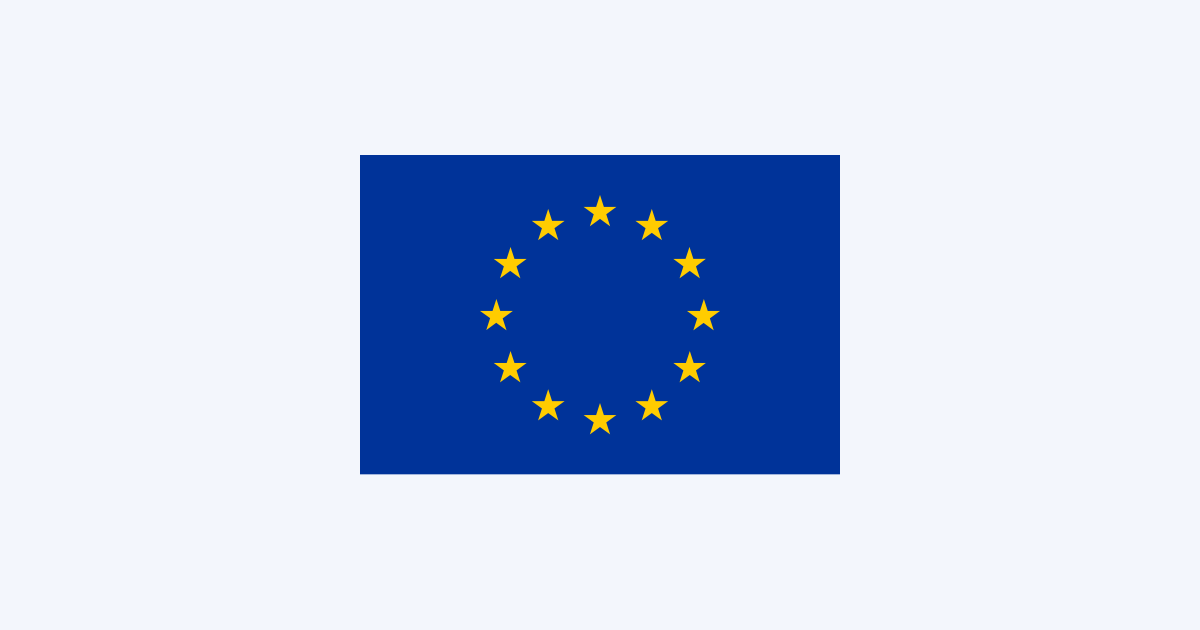

© FRVS+MPCP 2022. The European Times® News is registered as an EU Trademark. All rights reserved. The European Times® and the logo of The European Times® are EU trademarks registered by FRVS+MPCP.
Members/Partners of

About Us
Popular Category
DISCLAIMER OPINIONS: The opinions of the authors or reproduced in the articles are the ones of those stating them and it is their own responsibility. Should you find any incorrections you can always contact the newsdesk to seek a correction or right of replay.
DISCLAIMER TRANSLATIONS: All articles in this site are published in English. The translated versions are done through an automated process known as neural translations. If in doubt, always refer to the original article. Thank you for understanding.
DISCLAIMER PHOTOS: We mostly used photos images that are readily available online, from free sources, or from the people promoting the news. If by any chance it happens that we have used one of your copyrighted photos, please do not hesitate to contact us and we will take it down without question. We do not make profits as this is a not for profit project to give voice to the voiceless while giving them a platform to be informed also of general news, and it is completely free.
Editor Picks
Politics
Nature, climate, and circular economy projects emerge as winners at the 2025 LIFE Awards
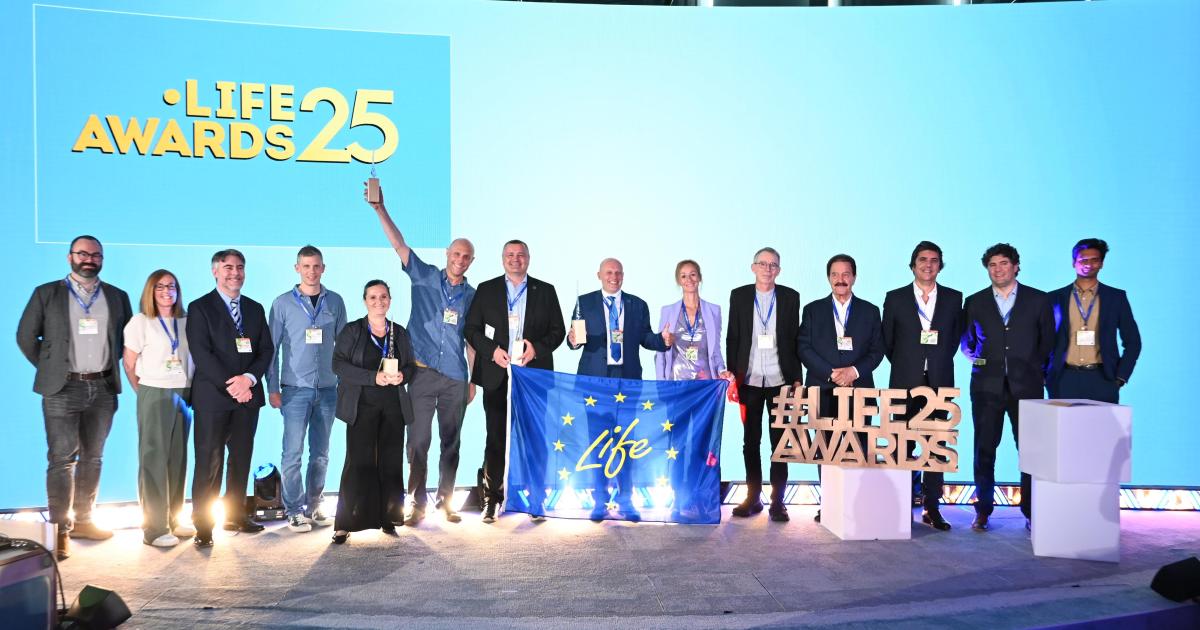
Three outstanding LIFE projects were awarded the LIFE Awards 2025, held as part of European Green Week to recognise excellence in nature conservation, circularity and climate resilience.
The winners were selected from nine finalists in three categories: nature, circular economy and quality of life, and climate action. Together, they represent some of the most creative and impactful initiatives helping to create a greener Europe.
The LIFE Award for Nature went to LIFE Lynx, which brought together conservationists, hunters and local communities to successfully reverse the decline of the Alpine Lynx in the Dinaric Alps. The runners-up in this category were LIFEraisedbogs and LIFE living Natura 2000.
LIFE Lynx also won the LIFE Citizens’ Prize, awarded to the project that received the most public support in an online vote.
The winner of the LIFE Award for Circular Economy and Quality of Life was LIFE POPWAT, which piloted a new nature-based technology to remove hazardous man-made chemicals from contaminated water in Czechia and Poland. The runners-up in this category were LIFE EMERALD and LIFE LANDSCAPE FIRE.
The winner of the LIFE Award for Climate Action was LIFE DESERT-ADAPT, a project combating desertification improving soil quality, improved water retention capacity and improved ecosystem resilience in Italy, Spain and Portugal. The runners-up in this category were NATURAL HVACR 4 LIFE and LIFE Natur’Adapt.
This year a special category was introduced – “Rising Star Recognition” – for projects making a remarkable contribution to the circular economy. This special Award went to LIFE RE-ZIP, a Danish project which aims to replace thousands of tonnes of commercial packaging waste with more environmentally friendly reusable eCommerce packaging. When the project ends in 2026, more than 120 million reusable packages will be in circulation, with 17,000 tonnes of cardboard and plastic waste saved and more than 300 jobs created.
About the LIFE Awards
The LIFE Awards celebrate the most impactful projects implemented under the LIFE Programme each year. Since 1992, LIFE has funded thousands of projects focused on environmental protection and climate action.
The LIFE Awards 2025 were awarded by a jury of experts including Konstantinos Bakoyannis, Chair of the Commission for the Environment, Climate change and Energy (ENVE) of the European Committee of the Regions; Sara Segantin, a writer, journalist, science storyteller and EU Climate Pact Ambassador and Hans Bruyninckx, Professor of Environmental Governance at the University of Antwerp, former European Environment Agency (EEA) Director, and Member of the International Resource Panel.
The jury commended the winners for the immediate and long-term environmental, economic and social improvements of their projects. They recognised their innovation, scale-up potential, and relevance to the EU’s decarbonisation, circularity and biodiversity goals.
Full list of LIFE Awards 2025 finalists
Nature Protection
LIFE Lynx: bringing together conservationists, hunters and local communities to successfully reverse the decline of the Alpine Lynx in Slovenia and Croatia.
LIFEraisedbogs: restoring over 900 hectares of rare raised peat bogs across 10 different sites in Denmark.
LIFE living Natura 2000: campaigning for understanding, acceptance and appreciation of the Natura 2000 network in Germany.
Circular Economy and Quality of Life
LIFE EMERALD: reducing air pollution and improving citizens’ health in Ireland.
LIFE POPWAT: piloting new technology to remove hazardous man-made chemicals from contaminated water in Czechia and Poland.
LIFE LANDSCAPE FIRE: combining traditional and modern fire prevention techniques to reduce large-scale forest fires in Portugal and Spain.
Climate Action
LIFE DESERT-ADAPT: tackling desertification by improving soil health, enhancing water retention, and building ecosystem resilience in Italy, Spain and Portugal.
NATURAL HVACR 4 LIFE: developing viable natural air-conditioning systems to replace climate-damaging F-gases (fluorinated greenhouse gases) in Belgium, Germany, France and Czechia.
LIFE Natur’Adapt: promoting climate change adaptation tools among 1 300 managers at 21 natural protected sites across France.
About the LIFE Programme
The LIFE Programme is the EU’s funding instrument for the environment and climate action. It has been bringing green ideas to life since 1992 and, to date, has co-financed over 6,000 projects across the EU and in third countries. For the 2021-2027 period, the European Commission has increased LIFE Programme funding by almost 60%, up to €5.4 billion, and included the clean energy transition sub-programme.
The recently-announced work programme for the implementation of the LIFE Programme in 2025-2027 established an overall budget of €2.3 billion for projects tackling circular economy, zero pollution, nature and biodiversity, climate mitigation and adaptation, and clean energy. The LIFE Programme is managed by the European Climate, Infrastructure and Environment Executive Agency (CINEA).
For further details on the LIFE Awards 2025, please visit the following link.
Politics
Eurojust supports successful operation against human traffickers

Authorities have tracked down and dismantled a human trafficking network operating in Switzerland. The criminal group recruited young vulnerable women in Romania for sexual exploitation. The close cooperation between investigators from both countries, supported by Eurojust and Europol, culminated in an action day on 3 June, during which 18 suspects were arrested.
The criminal group targeted individuals from disadvantaged communities in Romania. The perpetrators approached their victims on social media, luring them with false romantic promises or offers for them to perform sex work abroad under favourable conditions. Once the victims accepted these offers, they were taken abroad to provide sexual services on escort websites and in rented flats. They were kept under constant surveillance by the criminal group and subjected to appalling conditions, working long hours in degrading and unsafe circumstances. The victims were expected to work continuously, regardless of their mental or physical state. Even visibly pregnant women were forced to work without rest.
Investigations into the group uncovered a large-scale network that had been operating across Europe for over seven years. In 2022, its members moved to Switzerland to continue their activities in several Swiss German-speaking cities, particularly Zurich. The suspected leader of the group started to recruit new members, setting up his own criminal school, where he taught techniques enslaving and exploiting victims. In some cases, victims were traded between members in exchange for money or used as stakes in gambling.
A joint action day to dismantle the criminal group took place on 3 June. Authorities arrested 13 suspects in Romania and five in Switzerland. The alleged victims were brought to safety and given support from a counselling service specialising in human trafficking. In addition to targeting the members in Switzerland, the investigations also focused on individuals in Romania who provided logistical support and laundered the proceeds from the criminal activities.
The successful operation was made possible through close cooperation between Romanian and Swiss authorities under the coordination of Eurojust and Europol. A joint investigation team, set up and funded by Eurojust, ensured the authorities could work together quickly and efficiently. Europol supported the national authorities throughout the investigation by facilitating the exchange of critical intelligence and providing expert analytical support, including the preparation of link charts on the organised crime group. On the action day, Europol provided remote assistance to investigators by cross-checking operational data in real time.
The following authorities carried out the operation:
- Romania: Prosecutor’s Office attached to the High Court of Cassation and Justice – Directorate for Investigating Organised Crime and Terrorism, Bacau Territorial Service; Police Brigade for Combating Organised Crime Iași, Police Service for Combating Organised Crime Neamț; Neamț and Bacău County Gendarmerie Inspectorates; Mobile Gendarmerie Unit Bacău.
- Switzerland: Public Prosecutor’s Office of the canton of Zurich; Zurich City Police
Authorities have tracked down and dismantled a human trafficking network operating in Switzerland. The criminal group recruited young vulnerable women in Romania for sexual exploitation. The close cooperation between investigators from both countries, supported by Eurojust and Europol, culminated in an action day on 3 June, during which 17 suspects were identified.
Source link
-
EU & the World3 days ago
Aurora Borealis Forecast: Where & When to See the Northern Lights Tonight
-
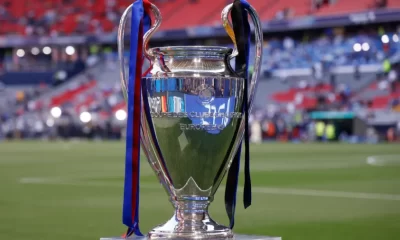
 Sports4 days ago
Sports4 days agoChampions League Final 2024-2025: PSG-Inter, official lineups
-
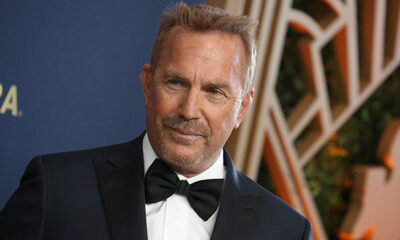
 EU & the World7 days ago
EU & the World7 days agoWhat Is Kevin Costner’s Net Worth? How Much the Actor Makes
-
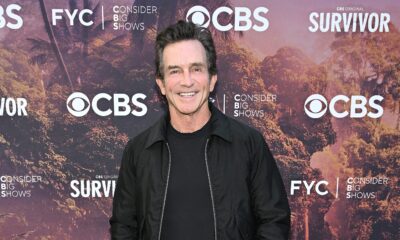
 EU & the World7 days ago
EU & the World7 days ago‘Survivor’ Season 50 Cast: See Which Stars Are Competing
-
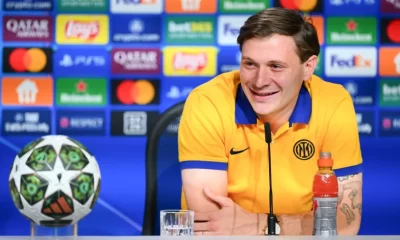
 Sports5 days ago
Sports5 days agoPSG-Inter, Nicolò Barella jokes about Gianluigi Donnarumma
-

 EU & the World7 days ago
EU & the World7 days agoTodd Chrisley’s Kids: Everything To Know About The 5 Children He Shares With Julie
-
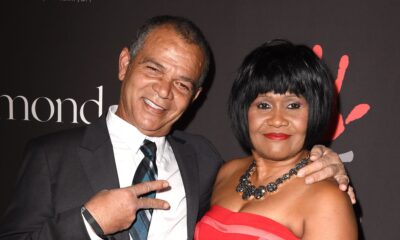
 EU & the World4 days ago
EU & the World4 days agoRihanna’s Parents: About Her Late Dad Ronald Fenty & Mom Monica Braithwaite
-

 EU & the World6 days ago
EU & the World6 days agoHailey Bieber’s Net Worth: How Much Money the Rhode Founder Makes









